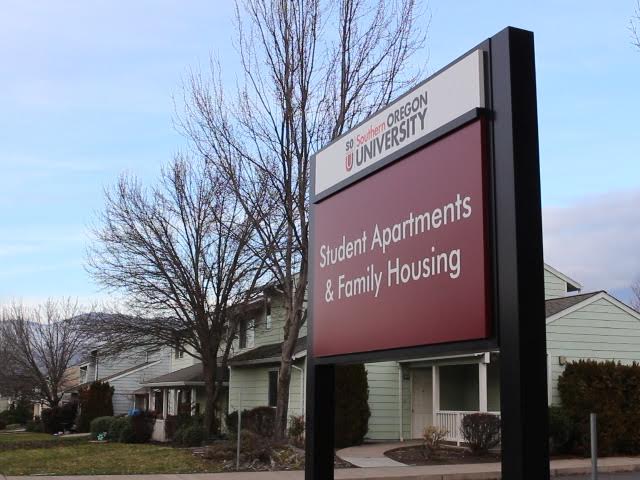After 3 years of work, the Associate Students of Southern Oregon University hope to finally make progress towards protecting students under Ashland’s fair housing ordinance, working with the Ashland Housing and Human Services Commission to present evidence of wrongful biases against students to the Ashland City Council.
Students run into Craigslist ads with the words “No Students” written boldly in the list of tenant requirements, making their search for housing nothing short of a hassle. While many students, who may be more than capable of being responsible ten ants, see it as degrading, it is completely legal. “I‘m a housekeeper, we’re clean, we’re quiet. We feel like we’re adults at this point,” said Kimberly Lobenstein an SOU student who struggled for weeks with roommate Paris Vollstedt to find a place to live.
ants, see it as degrading, it is completely legal. “I‘m a housekeeper, we’re clean, we’re quiet. We feel like we’re adults at this point,” said Kimberly Lobenstein an SOU student who struggled for weeks with roommate Paris Vollstedt to find a place to live.
ASSOU’s call for testimonies was announced at their Fair Housing Kickoff in the Stevenson Union on Wednesday night. “This campaign really hits home for a lot of people in our community, “ said Tori Uyehara, Student Body President of ASSOU and the first to speak to a group of approximately 20 students who attended the meeting.
“There’s simply not enough room on campus and the community does not want to cater to us,” stated Megan Mercier, head of Public Relations for ASSOU. Mercier prepared a detailed presentation on Oregon tenant law to make sure all students in attendance were educated about the matter.
The law currently protects renters against biases based on race, color, origin, gender, religion, disabilities, family status, and sexual orientation. At this time ASSOU is working to add age and occupation as a protected class under Ashland’s fair housing ordinance in order to protect students from being discriminated against.
ASSOU was originally planning on attending a Council meeting the 16th. They may have to postpone their appearance until the next council meeting on March 14th, as commissioner members may need more time to work with student representatives on the issue.
According to students involved in the campaign, their primary goal is to convince council members that irresponsible tendencies of some should not discredit every student’s ability to behave as responsible tenants.
Lobenstein and Vollstedt both recalled one apartment they were interested in, they paid a $120 rental application fee through CPM property management, only to receive a voicemail from the realtor stating that the owner wasn’t comfortable renting to students and they didn’t get their money back.
The owner holds the final say in who occupies their property. “I pay for my schooling and do everything on my own. Why can’t I get a place to live?” stated Lobenstein. The roommates were invited to the Fair Housing Kickoff by a friend who lent them their couch while they searched for a new apartment at the end of the fall term.
“We want to gather as many of these stories as possible […]to show how deeply this affects students as community members,” said Mercier. ASSOU is hopeful that these testimonies will persuade the City Council to take action, making changes to the existing ordinance to help student renters.



